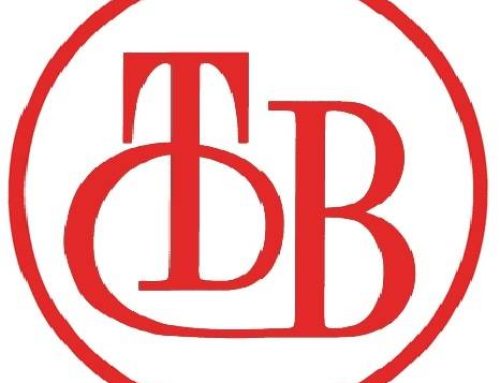 Manny Wood, Accredited Specialist in Wills & Estates, has put together a General Advice outlining the Probate process and the duties of executors and administrators.
Manny Wood, Accredited Specialist in Wills & Estates, has put together a General Advice outlining the Probate process and the duties of executors and administrators.
The General Advice is set-out below and you can find a PDF version here.
What is Probate?
A Grant of Probate is issued by the Supreme Court of New South Wales. It is formal recognition of the validity of a will and authorises the executors to administer the estate.
If there is no will, the Grant is known as Letters of Administration and administrators are appointed instead of executors.
It is necessary to obtain a Grant if the deceased owned real estate in their sole name. Nursing home bonds will normally not be paid until a Grant is obtained and banks will not release bank account balances of more than approximately $50,000 without a Grant.
How is a Grant obtained?
The application to the Court requires the filing of a Summons and supporting Affidavits that the executor need to sign. The original will must be lodged with the Court together with a certified copy of the death certificate. The application must detail the assets and liabilities of the deceased at the date of death and additional supporting documentation may be required.
We write to asset holders, such as the deceased’s banks to verify the nature of the assets at the date of death. The executor will need to investigate the deceased’s affairs in order to inform us of the nature of the deceased’s assets and liabilities.
The original will needs to be located. There is no central register of wills. If the executor is aware of the location of the will, and it is held by another solicitor, we can obtain the will from their safe custody.
We cannot proceed until we receive the original death certificate or a certified copy. The formal death certificate that we require is normally issued to the Funeral Director 3-4 weeks after the date of death.
Administration of the Estate
Once a Grant is obtained, the executor has the authority to realise the assets of the estate. We provide asset holders with a certified copy of the Grant and ask that the funds are deposited into our trust account. The sale of real estate cannot proceed to settlement unless a Grant has been obtained. When the assets of the estate have been realised, the estate can be distributed to the beneficiaries once they have provided us with their account details and ID.
Personal effects can be realised or distributed without a Grant. Motor vehicles can also usually be dealt with without a Grant of Probate, upon an executor providing ServiceNSW with a certified copy of the death certificate and will. The vehicle can then be registered in the executor’s name for sale or in a beneficiary’s name.
Executor’s Duties
An executor has the power to make funeral arrangements and must ensure that the funeral costs are paid. If there are funds held in the deceased’s bank account, the bank will normally pay the funeral costs and then freeze the bank account.
If there are other expenses of the estate that need to be paid such as rates, insurance premiums and electricity accounts, before sufficient assets are realised to do so, an executor or third party can pay these expenses and be reimbursed from our trust account, when there are funds available to do so. Instructions regarding reimbursement need to be received by us prior to distribution of the estate and will be recorded in the Distribution Statement.
An executor must insure the assets of the estate and preserve their value until distribution. If an asset was insured prior to death, the executor should inform the insurer of the death. Insurers will generally not discuss the deceased’s affairs with us and it is important that the executor makes these enquiries personally.
An executor must attend to finalising the tax affairs of the deceased and the estate. As solicitors, we cannot provide financial or taxation advice. It is important that an executor attains their own accounting advice. This is particularly relevant in terms of income tax, including capital gains tax as there are time limits that apply to the sale of estate assets, including the principal place of residence, which may be as little as 2 years. Executor’s must also keep proper accounts and records and keep assets of the estate separate from their own. Assets must be realised at market value.
An executor must pay creditors of the estate. If the estate is distributed before just debts are paid, the executor can be personally liable. We will advertise your intention to distribute the estate but an executor will not be protected by the notice unless the estate is distributed after six months from the date of death. We will not distribute before the six-month period expires, unless instructed to do so.
If an executor distributes to a bankrupt beneficiary, they may also be held liable. We recommend bankruptcy searches are made prior to distribution. We will attend to this if instructed to do so, as an expense of the estate. The Court expects that straightforward estates are fully distributed within one year from the date of death. This is referred to as “the executor’s year”.
It is important to understand that as the executor’s solicitors, we provide the executor with advice and we cannot act without the executor’s express instructions. Similarly, we cannot provide advice to beneficiaries due to a potential conflict of interest and to protect confidential information.
Probate Costs
The costs of obtaining Probate are regulated in accordance with a sliding scale, based on the estimated gross value of the assets of the estate at the date of death. Our costs are calculated in accordance with the scale. A filing fee is also payable to the Supreme Court of New South Wales, based on the gross value of the estate at the date of death.
There are additional legal costs payable, after the Grant of Probate is received. These costs may relate to the transfer or sale of real estate, the realisation of estate assets and distribution to beneficiaries. Our additional costs are calculated in accordance with our usual rates and will depend on the work involved.
We will give you a costs agreement, which provides you with an estimate of our total costs. The executor will need to sign and return the cost agreement to us before we can act.
We do not require any upfront payments. Our costs are paid from estate assets realised in due course.
The executor’s role is considered to be a gratuitous one, but in some cases, an executor may be entitled to receive a payment from the estate, for performing their role. This payment is called a Commission. If you wish to claim commission, advise us prior to the distribution of the estate.
Disputes
If disputes arise, we have an accredited specialist in wills and estates to provide you with the proper advice. Wills can be attacked on the basis of an alleged undue influence or a lack of capacity. They can be declared invalid if they are not executed properly or clearly drafted. Claims can also be made by eligible persons who do not receive proper and adequate provision. These are called Family Provision Claims and a 12-month limitation period from the date of death applies.
It is important to understand that we act on behalf of the executors and we are unable to provide independent legal advice to beneficiaries. It must also be understood that if we are retained by joint executors, and there is disagreement amongst those executors, we will have to refer the executors away for independent advice until such time as they are able to provide us with joint instructions.
Additional Information
Our trust account does not earn interest. The executor can instruct us to make an interim distribution of funds if there is a delay in realising other assets.
Anyone named in the will is entitled to a copy of the will. A child of a deceased person is entitled to a copy of the will even if they are not named in the will.
The deceased’s mail should be redirected to an executor as soon as possible.
Superannuation does not always form an asset of the estate and its release will depend on the requirements of the particular fund.
Jointly owned assets do not form part of the estate. Bank accounts can be dealt with by the surviving account holder by visiting a branch with a certified copy of the death certificate. We will register jointly owned real estate in the name of the survivor by lodging a Notice of Death with NSW Land Registry Services. We need the original Certificate of Title to do so and there are additional costs and registration fees payable.
General Advice
This is a general advice and cannot be solely relied upon in relation to your particular matter.
Call Manny Wood for Accredited Specialist advice.
This article is intended to be for information and educational purposes only and cannot be relied upon as legal advice. The information may not apply to your circumstances or to your particular situation. If you need specific advice or you have any questions, we welcome you to contact us directly.





